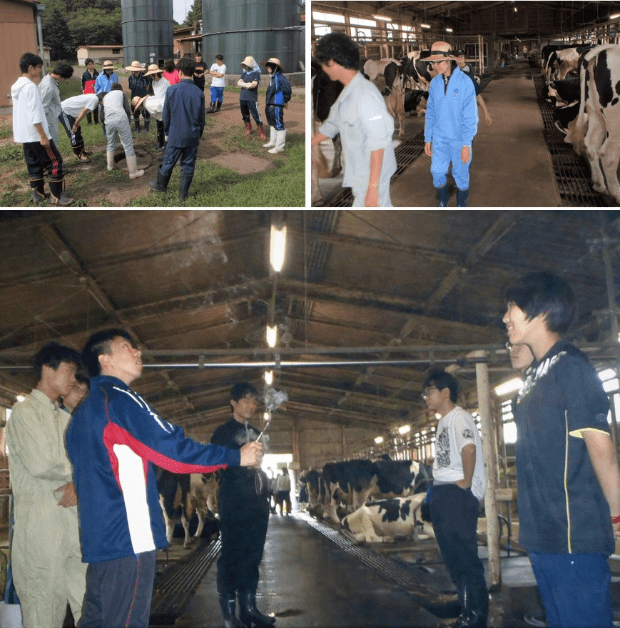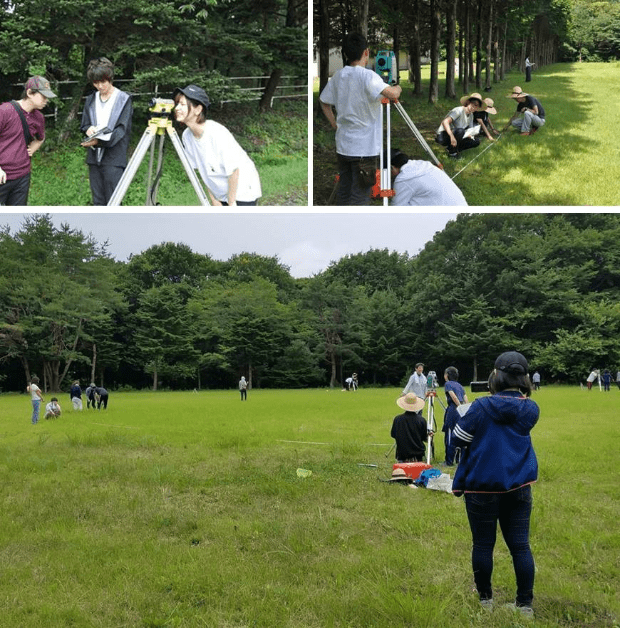Learn the agricultural environment quantitatively
toward our sustainable food production
The Department of Environmental Engineering is working on “Understanding a system of sustainable food production.” We strive to identify the key to create and implement sustainable food production systems by taking the engineering approach and applying the biology and social science methods. Our research focuses on the components and environment associated with actual food production, including soil and water, crops and livestock, machinery and facilities, production systems, food, and local resources.
In the curriculum of the Department of Environmental Engineering, students learn theories in basic subjects of dynamics and mathematics and application of the theories and practical methods in specialized ones. We nurture individuals who contribute to the development and conservation of agricultural fields, the management of ecosystems and rural environment, development and support of international agriculture, and technological development and system construction for efficient food production, distribution, and consumption.
This course is suitable for students interested in agriculture, food, environment, and the ecosystem, such as creating and conserving agriculture and rural environment and developing and supporting technologies for sustainable food production.


Certificates and licenses for the graduates
- Associate professional engineer (The institute of professional engineers, Japan)
- Assistant surveyor (Geospatial information authority of Japan)
- High school teacher's primary license (Agriculture) (Ministry of education, culture, sports, science, and technology)
- Biotope planners and builders (Ecosystem conservation society-Japan)
Curriculum (excerpt)
| Lectures | Experiment and practices | |
|---|---|---|
| Freshman |
<Compulsory subjects>
|
|
| Sophomore |
<Specialized subjects>
|
|
| Junior |
|
|
| Senior |
|
